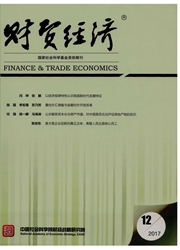

 中文摘要:
中文摘要:
改革开放初期,“引进来”战略的实施使得包括主要发达经济体在内的外资对中国直接投资流入高速增长。然而,在中国加入WTO以来,主要发达经济体对中国直接投资却呈现出持续下降的趋势。本文在对1996—2012年主要发达经济体对中国直接投资进行实证分析的基础上,认为中国市场需求的持续扩张、企业生产成本上升以及投资国经济发展水平是影响主要发达经济体对中国直接投资的主要决定因素,而中国外资政策红利的衰减、人民币汇率升值以及投资国对外投资政策的变化对于不同发达经济体对外投资的影响不尽一致。为进一步吸引主要发达经济体对中国的直接投资,东道国应在继续坚持扩大开放的基础上对外资政策进行适当的微调以及作为投资国的主要发达经济体消除投资保护主义以增进双边投资等,是中国与主要发达经济体互利共赢的重要策略。
 英文摘要:
英文摘要:
At the beginning of reform and opening up, the implementation of "bringing in" strategy promoted the increase of foreign direct investment(FDI) to China. However, since China's access of WTO, the FDI of major developed economies to China has been showing a continued downward trend. Based on the empirical analysis in FDI of major developed economies to China from 1996 to 2012, this paper holds that the continued expansion of China's market demand, the rise of production cost of enterprises and economic development level of investors are the main factors which determine the major developed economies' FDI to China. The attenuation of China's foreign policy dividend, the appreciation of RMB exchange rate and the change of foreign investment policies of investors have dissimilar effects to different developed economies. In order to attract major developed economies' FDI to China, the host country should adjust the foreign capital policy on the basis of adhering to opening wider to the outside world. Eliminating the investment protectionism to promote bilateral investment is a significant strategy to make mutually benefits for both China and developed economies.
 同期刊论文项目
同期刊论文项目
 同项目期刊论文
同项目期刊论文
 期刊信息
期刊信息
